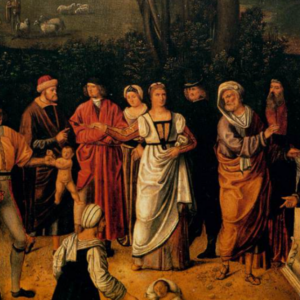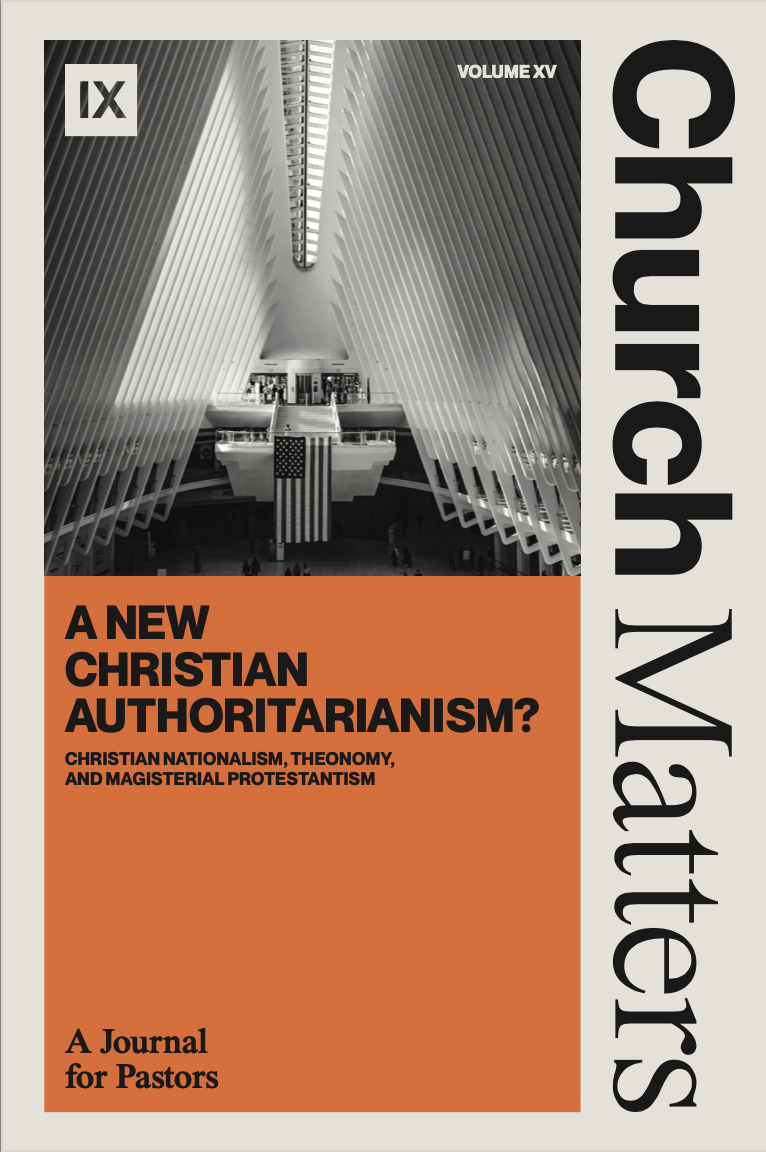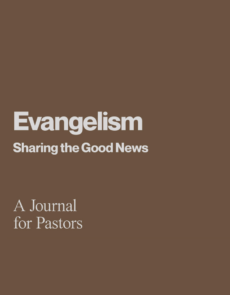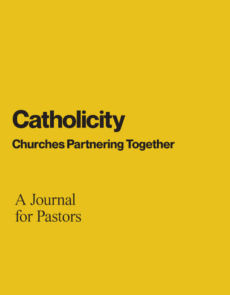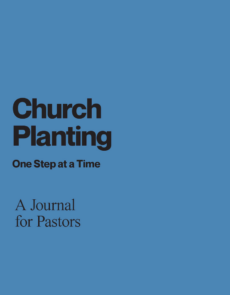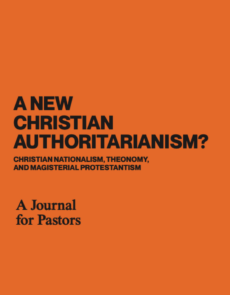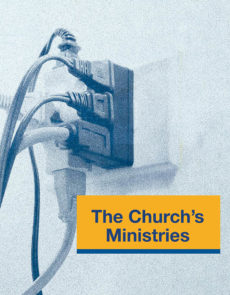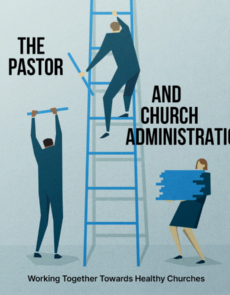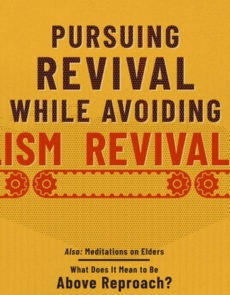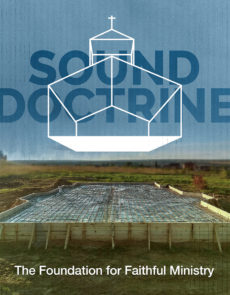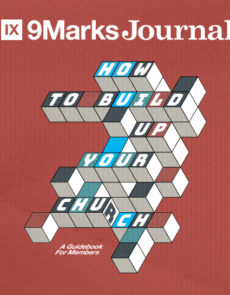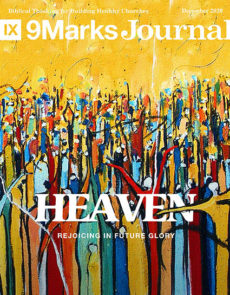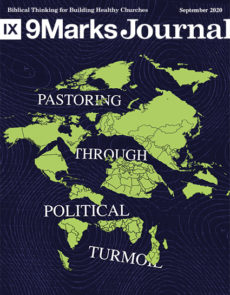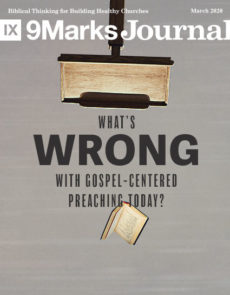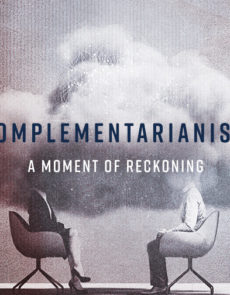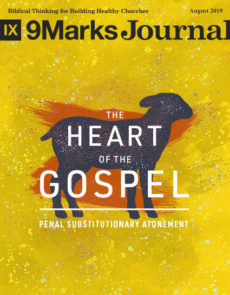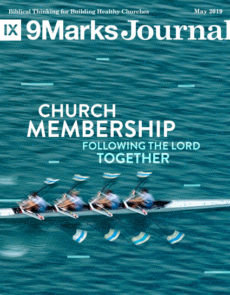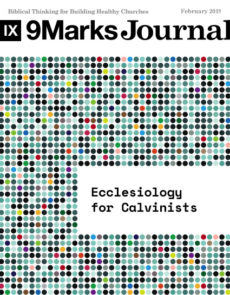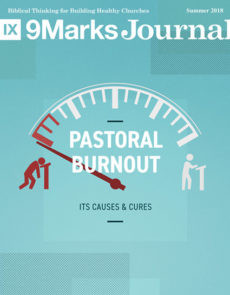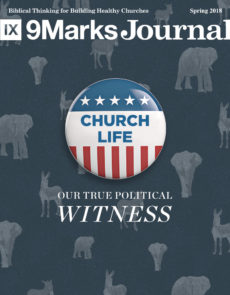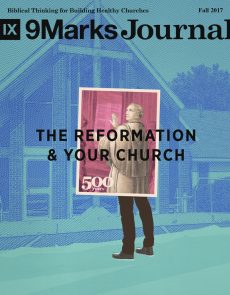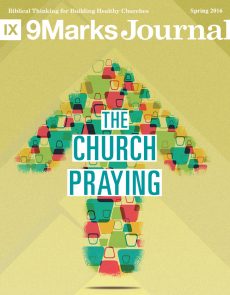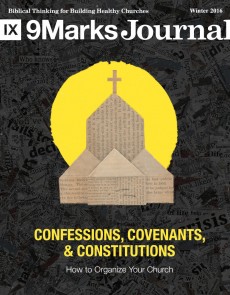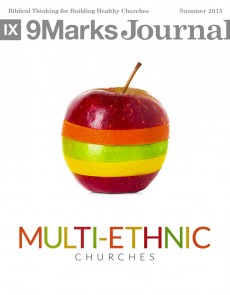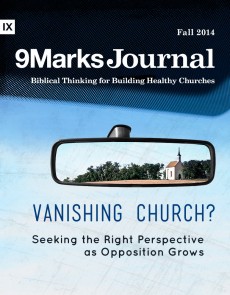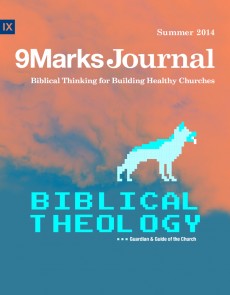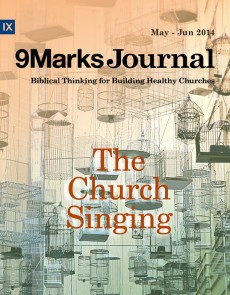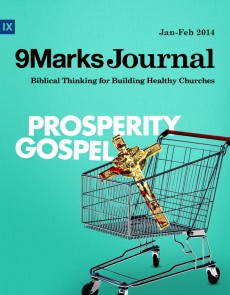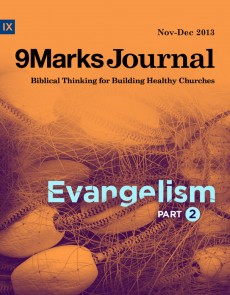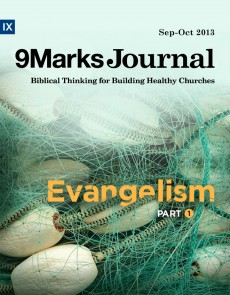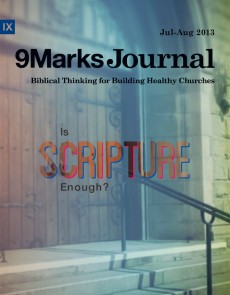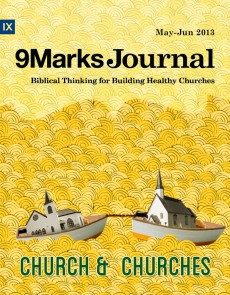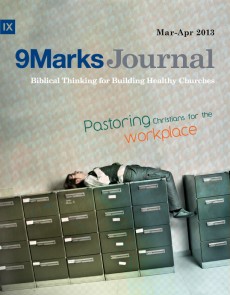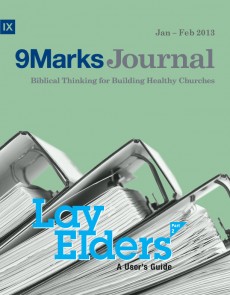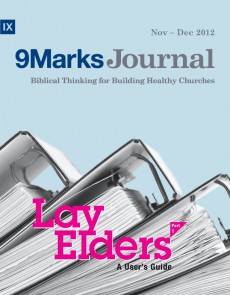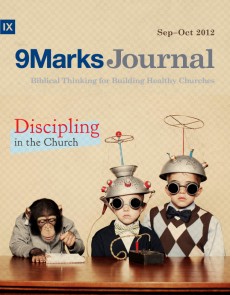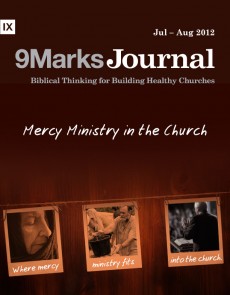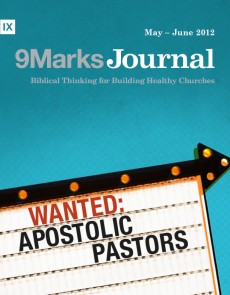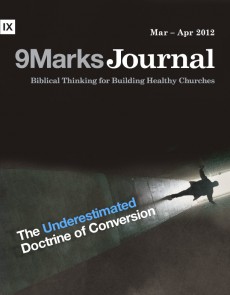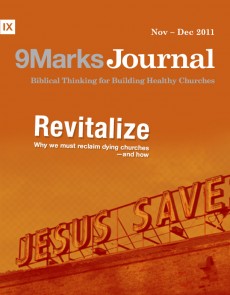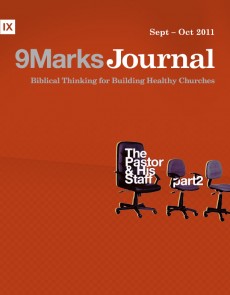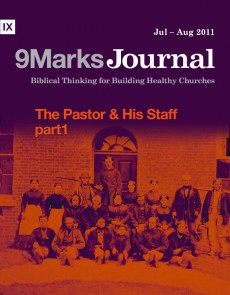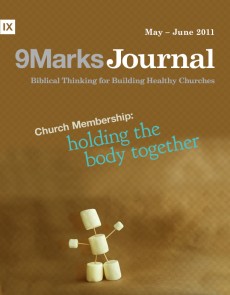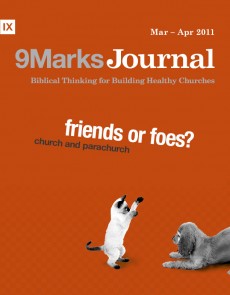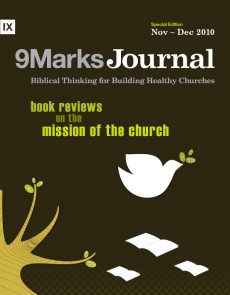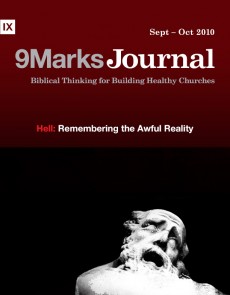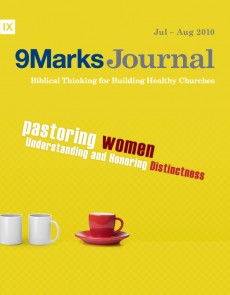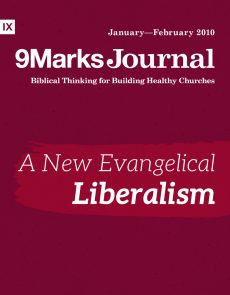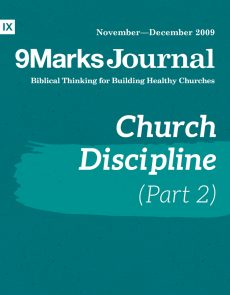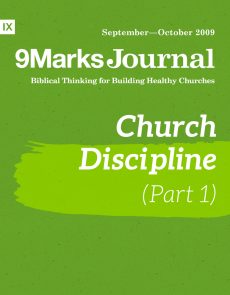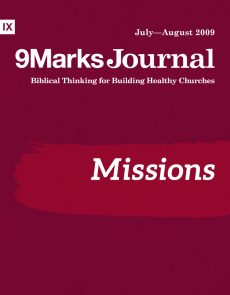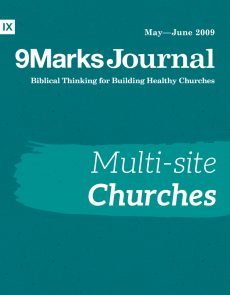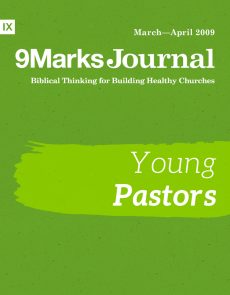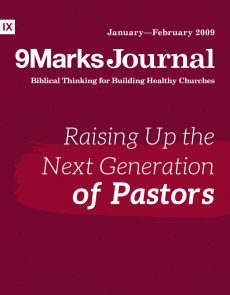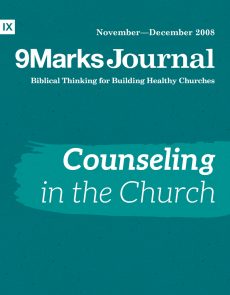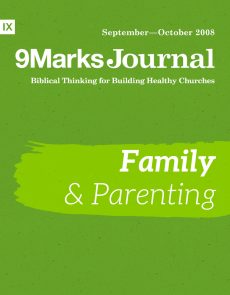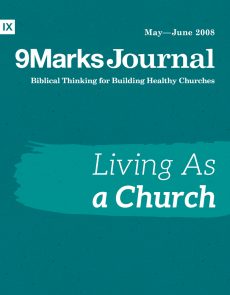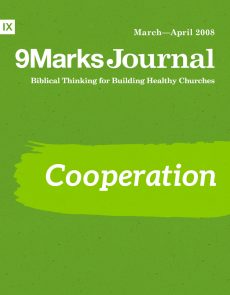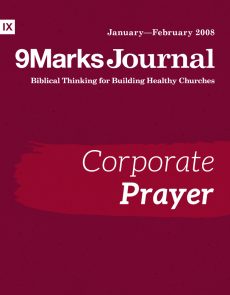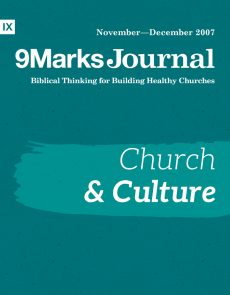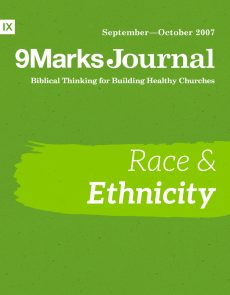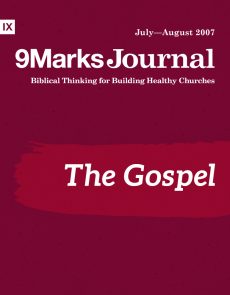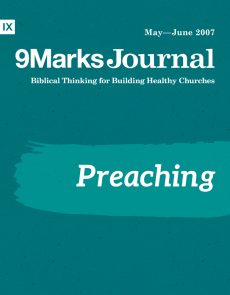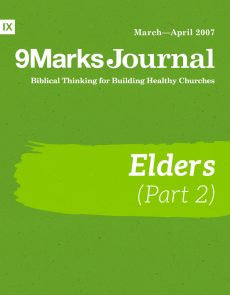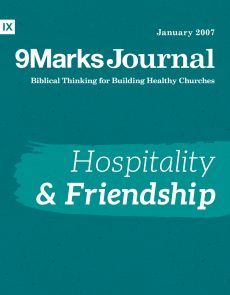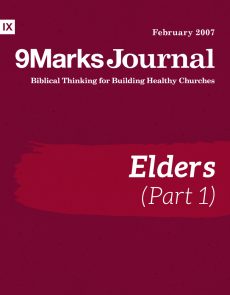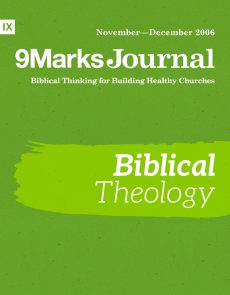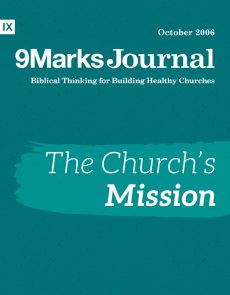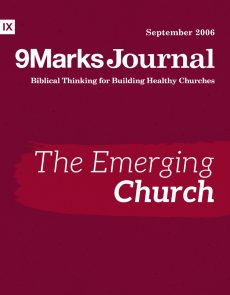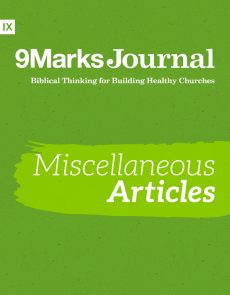Editor’s Note
Editor’s Note: Why This Is a Mission of the Church Conversation
Let’s start with what this edition of Church Matters (formerly the 9Marks Journal) on theonomy and Christian nationalism means to do and not do.
It does not mean to call into question anyone’s profession of faith. It addresses “second tier” not “first tier” issues, to use the rankings of theological triage. First tier issues, like the doctrine of God or salvation, are gospel issues. A person’s salvation depends on getting them right. Second tier issues, like the ordinances or ordination, are church issues, referring particularly to the local church.
Disagreements over second-tier issues involve conversations among Christians by Christians, and hopefully this journal models such a spirit.
Yet second-tier conversations remain crucial because they serve to display, protect, and provide an apologetic for the gospel. And that’s why the local church exists—to display, protect, and provide an apologetic for the gospel. Individuals might get saved apart from a church, but preserving their gospel witness from one generation to the next requires a biblically-constructed church.
On the whole, the conversations raised by a new generation of theonomists, Christian nationalists, and magisterial Protestants are second-tier conversations. Should the church pick up the sword in order to aid the work of the church? Are churches tasked with “transforming” the nation in any sense of that word? Should they apply Christ’s name to a nation? Our answers to those questions will decidedly impact what a church is as well as its mission.
That’s why you should take an interest in this conversation, pastor. It’s a mission of the church conversation.
HOW DEVELOPED IS YOUR POLITICAL THEOLOGY?
Taking a step back, the bigger picture is this. A pastor’s own theological development should include what the academic crowd calls political theology. Political theology is that area of theology that helps us to situate churches on the landscape of the nations and their governments, like pins on a map. It includes topics like the relationship between church and state, religious liberty, views on Christ and culture, the duties of citizenship, as well as what’s appropriate for preachers to preach about an upcoming election. Sometimes people refer to some of these topics—especially as it pertains to public engagement—as “public theology.” Use that term, too, if you want. The larger umbrella label, as I prefer it, is political theology.
Faithful pastors rightly deplore the politicizing of the pulpit—employing the pulpit for partisan or policy-program ends. Doing so subverts the agenda of Jesus’s heavenly kingdom to earthly ones. Still, your political theology, like your eschatology and your view of the biblical covenants, will shape your view of the church’s mission. Therefore, it’s a necessary topic for pastoral study.
A Christian politics begins the moment a brand-new baby believer declares, “Jesus is Lord!”
Then it’s your and the church’s job, pastor, to teach the new baby Christian everything Jesus commanded (Matt. 28:19), including in the so-called political areas of life. Our politics are hardly exempt from Christ’s Lordship. They cannot be quarantined off from our “religion.” Rather, politics is one area of Christian discipleship.
Yet what all does obedience entail for a Christian in the political domain? How specific and detailed should a pastor be? How broadly should a church or its members seek to influence the state? Here’s where the second-tier conversations begin.
AUTHORITARIANISM
A new generation of writers and speakers offer an expansive and—I believe—authoritarian answer. I use the term authoritarian first descriptively: they ask the state to do more than classical liberalism asks it to do, at least by recent definitions. Classical liberalism foregrounds liberty. It asks the state to secure the maximal amount of liberty for everyone. This group of writers, therefore, might be called post-liberal.
Yet I’m also using the term authoritarian evaluatively: their teachings about civil government give more authority to the state than the Bible does, or at least than biblical wisdom recommends. I’m not saying the Bible gives us classical liberalism. But I would say the Bible’s view of government overlaps with liberalism at least at these two crucial points: both impose a narrower jurisdictional lane on the government than theonomy and magisterial Protestantism do, and both charge the government with protecting the basic political equality of all citizens.
Yet turn to the rest of the journal for that argument. The point for now is, this edition of Church Matters hopes to help you become more conscious of your political theology, pastor, so that you might better ascertain how it shapes your understanding of your job as well as the mission of the church.
MISSION OF THE CHURCH AND THE RISKS OF POLITICAL URGENCY
That brings me to a word of caution, and the main thing I want you to walk away with from this opening piece. The mission of the church is a risky topic for pastors because we always run the risk of getting sidetracked by whatever political, economic, or moral challenges feel most urgent in our time and place. If you’re able to open your Bible and find anything remotely connected to your present challenges, you’ll be tempted to shape the mission of the church around them.
Do you feel oppressed? The Bible opposes oppression. So say the church exists to oppose oppression.
Do you worry about the decline of morality in your nation? The Bible opposes the decline of morality in a nation. So say the church exists to fight for a moral nation.
Do you care about good government? The poor? Material blessing? Finding purpose for your life? Healthy families? The Bible addresses all of those things. So say the church exists primarily for those things. At least that will be your temptation.
When people feel the pressures of political division or cultural decline, that’s all they want to talk about. They’ll post on social media, “Now is the time to take a stand and fight.” And they’ll shape the mission of the church around it.
No doubt, there are times to take stands or do the unusual. You don’t want to be the pastor arguing “Let’s avoid politics!” in 1859 United States or 1938 Germany. You want to be the guy who takes the right stand in such moments.
Yet it’s precisely in these high-political-stakes moments we need to be especially careful, lest our churches veer off track. The temptation to swerve grows when strife grows. More than anything, then, days of cultural turmoil and political tumult require us to double down in studying Scripture. There’s a difference between being sensitive to the economic waves and political winds and being driven by those waves and winds. When churches are driven, their playbooks—their sense of their mission—easily succumb to biblical imbalances and worldly agendas.
So here we are, standing at what feels like the transition from one major historical epoch to another—from a civilization that flew under the banner of “Christendom” to one counted as post-Christian and neo-pagan. Compared to 50 and especially 100 years ago, Christianity no longer possesses the respect of the political, commercial, legal, and cultural establishment, even if that respect was only nominal. The Protestant primacy given to the individual’s conscience before God feels the teeth of identity politics biting at its heels. Even basic civilizational building blocks like gender and family are suddenly up for grabs. It’s no surprise, therefore, that Christians find themselves thrust back into intense mission-of-the-church conversations. It’s not hard to understand why so many young Christian are asking—and, God bless them, it’s primarily young men asking— “Wait a second, is there more the church should be doing here?!”
Does the change in a nation’s disposition toward Christianity and Christian morality change the church’s mission? Certainly not, and no one would say it would. Still, look around. There is a surge in the popularity of postmillennial eschatology. Theonomy and magisterial Protestantism, long thought dead, have recently been resuscitated. And movements like these contribute to an expanded view of the church’s mission. The church isn’t asked just to make disciples and teach everything Jesus commanded, but to work for the transformation and restructuring of society in this present age.
Right here, ironically, the authoritarian versions of the political right and left converge. They impose different political agendas on the church, but both impose a more substantive political agenda. The left calls the church to dig water wells in Africa. The right wants to put Jesus’s name into the constitution. The left calls for racial reparations. The right wants to criminalize blasphemy. If you push back, the left will charge you with caring only about gospel creeds, not gospel deeds, orthodoxy, not orthopraxy. The right will charge you with being pietistic, spiritualistic, passivistic, and maybe anabaptistic. My point is not that “We need a third way because Jesus is neither politically left nor right.” My point is that there are more or less authoritarian versions of the left and right, like a y-axis of authoritarianism running perpendicular through an x-axis of left and right (similar to the y-axis here).
If you lean authoritarian, therefore, whether left or right, I’d ask you to remember what Jesus said to Peter when Peter picked up the sword in the Garden of Gethsemane: “We’re not gonna build my kingdom that way, Peter!”
Should Christians pick up the sword to accomplish civil ends? Yes. But ecclesial ones? No, and sorting out the difference between those two things is the burden of this journal.
Related Multimedia

Preacher Mailbag #6 (Preachers Talk, Ep. 74)
By David Helm, Jeremy Meeks, K. Edward Copeland